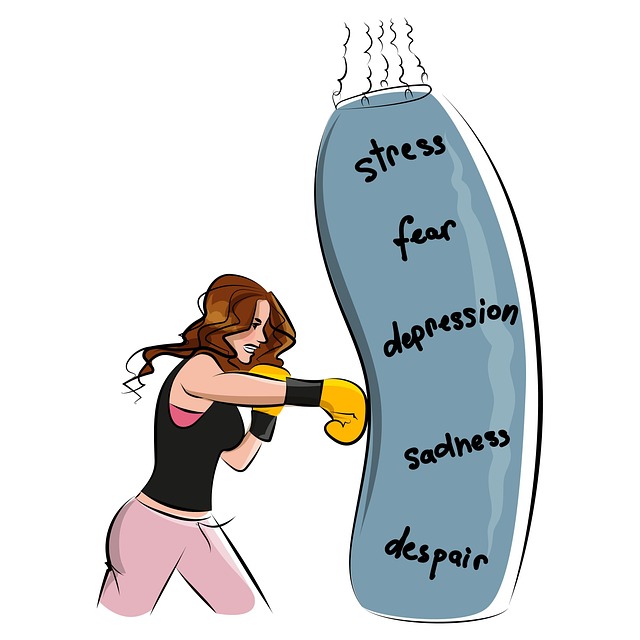Substance abuse among men is a critical issue requiring early intervention through recognizing subtle signs like behavioral changes and mood swings. Superior Men's Issues Therapy focuses on open dialogue, coping skills development, and positive thinking to prevent addiction and improve mental health. Creating supportive environments through social connections, family involvement, and community resources plays a vital role in risk reduction strategies. Evidence-based therapies, including Cognitive Behavioral Therapy (CBT), promote emotional well-being and stress management, enhancing resilience against relapse. Structured routines, mindfulness techniques, peer support, and tailored cultural approaches contribute to long-term recovery, with access to support groups and professional help breaking the addiction cycle and fostering a more supportive societal environment.
Substance abuse is a complex issue affecting men across various walks of life. Recognizing the signs and taking proactive steps is crucial for successful risk reduction. This article explores comprehensive strategies for tackling this challenge, from understanding the root causes to accessing professional help. We delve into creating supportive networks, implementing evidence-based therapies, adopting lifestyle changes, and connecting with resources like support groups. By embracing these tactics, individuals can embark on a path to recovery, reclaiming their lives and overall well-being, especially through superior men’s issues therapy.
- Understanding Substance Abuse: Recognizing Red Flags and Early Signs
- Creating a Supportive Environment: Family, Friends, and Community Involvement
- Evidence-Based Therapies for Effective Treatment and Recovery
- Lifestyle Changes and Coping Strategies to Avoid Relapse
- Accessing Resources: Support Groups, Professional Help, and Ongoing Care
Understanding Substance Abuse: Recognizing Red Flags and Early Signs

Substance abuse is a complex issue that often requires professional help to navigate and overcome. Understanding the subtle signs and symptoms is crucial for early intervention, especially when it comes to men’s issues. Superior Men’s Issues Therapy highlights that recognizing red flags can be life-saving, enabling individuals to seek support before addiction takes hold. Common indicators include sudden changes in behavior, such as increased isolation, irritability, or neglect of personal hygiene, which may signal a struggle with substance abuse.
Early signs can also manifest as altered attitudes and routines; for instance, frequent mood swings, loss of interest in hobbies, or excessive secretiveness. Additionally, significant shifts in academic or work performance, along with financial difficulties, could be red flags. Encouraging open dialogue and promoting healthy stress management techniques through Coping Skills Development and Positive Thinking are essential components of prevention and early support, guiding individuals towards better mental health and well-being.
Creating a Supportive Environment: Family, Friends, and Community Involvement

Creating a supportive environment is a crucial aspect of risk reduction strategies for substance abuse, especially when it comes to men’s mental health issues. Family, friends, and community involvement can play a pivotal role in an individual’s journey towards recovery. Superior Men’s Issues Therapy recognizes the power of social connections as a form of therapy and support system. Encouraging open communication within families and fostering strong friendships can help individuals cope with underlying issues, such as stress reduction methods and anxiety relief, that may contribute to substance abuse.
Public awareness campaigns development around mental health and substance abuse can also create a more supportive environment. By educating communities about the signs of struggle and available resources, we can break down stigmas and encourage early intervention. This collective effort ensures that individuals facing these challenges do not feel isolated but instead find solace and guidance from those who care.
Evidence-Based Therapies for Effective Treatment and Recovery

Evidence-Based Therapies play a pivotal role in addressing substance abuse and promoting recovery. These therapeutic approaches are backed by extensive research, ensuring their effectiveness in treating various mental health issues that often accompany addiction. Superior Men’s Issues Therapy, for instance, focuses on tailored interventions to address unique challenges faced by men struggling with substance abuse. Techniques like Cognitive Behavioral Therapy (CBT) have proven invaluable in helping individuals identify and change destructive patterns of thinking and behavior associated with substance misuse.
Integrating Emotional Well-being Promotion Techniques within these therapies is crucial. By teaching mood management skills, depression prevention strategies, and stress coping mechanisms, individuals gain the tools to maintain stability and avoid triggers that could lead to relapse. This holistic approach not only addresses the physical aspects of addiction but also prioritizes emotional resilience, fostering a stronger foundation for long-term recovery.
Lifestyle Changes and Coping Strategies to Avoid Relapse

Substance abuse recovery is a journey that requires ongoing commitment and the development of healthy coping mechanisms. Lifestyle changes play a pivotal role in preventing relapse, offering individuals the tools to manage triggers and cravings effectively. One of the primary strategies involves creating a structured daily routine, which includes regular exercise, balanced nutrition, and sufficient sleep. These activities not only promote overall physical health but also serve as positive distractions from potential substance-using triggers.
Additionally, integrating evidence-based coping skills such as mindfulness meditation, cognitive-behavioral therapy (CBT), or engaging in creative outlets like art or music can be immensely beneficial. These practices aid individuals in managing stress, regulating emotions, and cultivating mental resilience. Moreover, seeking support from peers through community outreach programs or joining support groups can foster a sense of belonging and accountability, enhancing the effectiveness of recovery strategies. Incorporating cultural sensitivity in mental healthcare practice ensures that these coping strategies are tailored to an individual’s unique background and needs, contributing to long-term success in substance abuse risk reduction.
Accessing Resources: Support Groups, Professional Help, and Ongoing Care

Accessing resources is a crucial step in reducing risks associated with substance abuse, especially for men looking to prioritize their emotional well-being. Support groups offer a safe and supportive environment where individuals can share experiences and gain insights from peers facing similar challenges. These groups foster a sense of community, providing invaluable peer-to-peer assistance that complements professional help. Many support groups also offer crisis intervention guidance, helping individuals navigate challenging situations and avoid relapse.
Professional therapy plays a pivotal role in addressing the root causes of substance abuse and promoting emotional well-being. Superior Mens Issues Therapy, for instance, focuses on tailored interventions to tackle specific challenges men may face. These therapeutic approaches, combined with ongoing care, help break free from the cycle of addiction by offering long-term strategies for managing triggers and maintaining sobriety. Mental illness stigma reduction efforts also contribute to this process by creating a more inclusive and supportive societal environment, encouraging individuals to seek help without fear of judgment.
Substance abuse is a complex issue, but with comprehensive risk reduction strategies, recovery is attainable. By combining early intervention through recognizing red flags, evidence-based therapies like those offered by Superior Men’s Issues Therapy, and adopting healthy lifestyle changes, individuals can overcome addiction. A supportive network of family, friends, and community plays a vital role in the process, while access to resources like support groups and ongoing care ensures long-term success. Embracing these strategies paves the way for a brighter, healthier future free from substance abuse.














